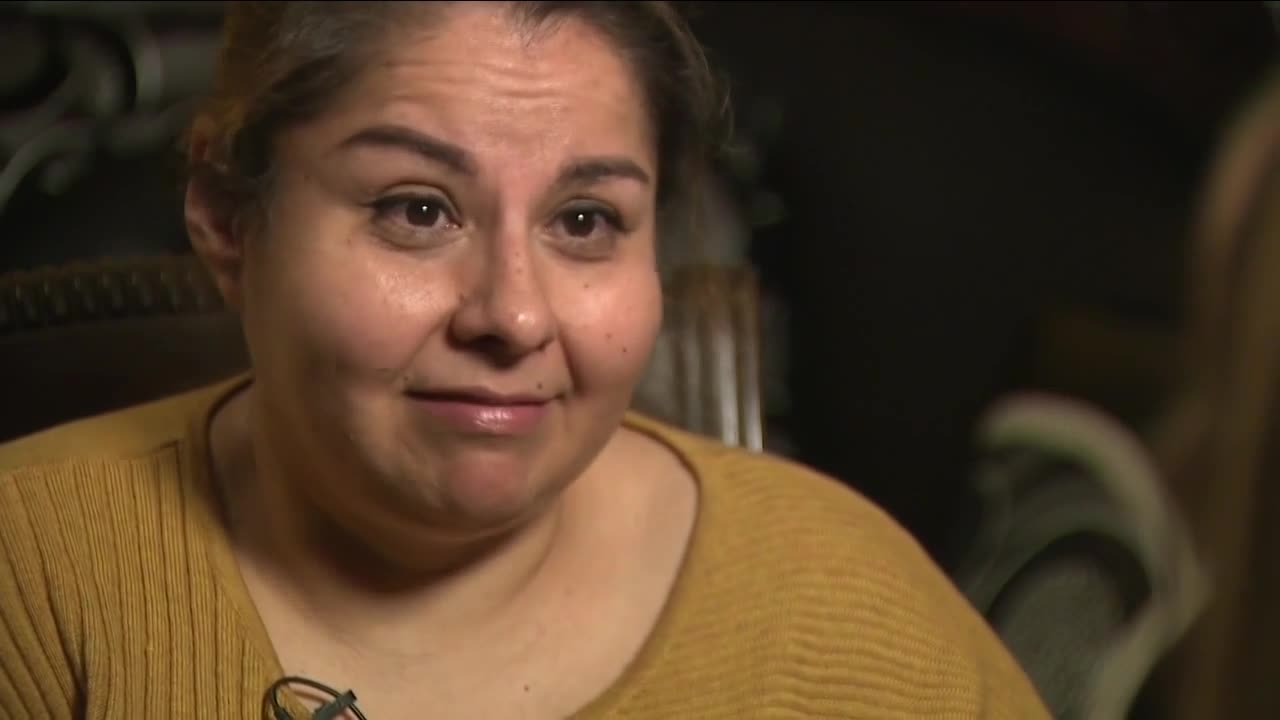DENVER — Maria Cervantes doesn't think of herself as a crime fighter, but the Denver woman did something that many bank fraud investigators could not: She stopped a con artist from stealing her life savings after a wire transfer was already made.
"We worked hard for this money," Cervantes said. "If I hadn't acted fast, I would have lost everything."
On Dec. 14, 2022, Cervantes received a series of texts about unauthorized withdrawals from her Chase bank account — a common texting scam.
"They wanted me to reply, 'yes' or 'no,' if I authorized those transactions," she said, who replied "no" to the messages and then received a phone call and an email from the scammer. "When I clicked on a link, it asked me for my debit card information. So, that's how he was able to go into my accounts. It's been a nightmare since then."
Documents show scammers had wired her family's life savings, $97,000, in three wire transfers to a Wells Fargo account in New Jersey.
"I don't know anyone in New Jersey. I've never sent a wire transfer," Cervantes said. "I thought my money was protected in the bank, but why did they let this happen?"
Within an hour or so, Cervantes said her daughter-in-law received notice of a $5,000 Venmo transfer from Cervantes and alerted her there might be a problem with her account.
Cervantes immediately called Chase and drove to a nearby branch. Emails show that Chase informed her the wire transfer had been canceled, but Cervantes later learned that was not true.
She drove to a local Wells Fargo to explain the situation, and as a result, bankers there froze the fraudulent account that contained her money, so the thief did not have access.
The thief had already somehow managed to get away with more than $5,000.
"He was in a different state two hours ahead of us. I think they'd closed. So, he didn't go [again] until the next morning," she said. "They had told me that he went into their branch in New Jersey. And he tried getting these funds out, but the account was already put on hold. He tried using his debit card at an ATM, and they denied it because the account was already on hold. He tried to go in the branch, and he was very suspicious. They didn't give him anything."
Cervantes had to jump through hoops for weeks to get her remaining money out of the frozen Wells Fargo account. She said Chase was not cooperative, so she relied on the Colorado Bureau of Investigation for assistance.
"She's just tenacious, and I think that really paid off for her," said Agent Traci Dowd with the Colorado Bureau of Investigation's High Tech Crime Unit. "If the bank or someone tells them that the money is gone, that it's not recoverable that's just simply not true. The money can be recovered and there are steps you can take."
Dowd said her office urgently investigates wire transfer fraud because time is of the essence in cases like Cervantes'.
She recommends victims of wire fraud or bank fraud immediately contact their banks and CBI at https://www.reportwirefraud.com/
"Be aware that even if you think, 'Who would do this to me?' or 'Why would I be a target?' — Understand that we're all kind of targets," Dowd said. "The difference is, again, being suspicious of different texts or emails that come through, independently verifying the information, and then if you're suspicious before you send money, let somebody else know in your life what's happening, or call us and we'll walk you through and tell you if it's a scam. So just be very diligent and kind of open to the fact that anybody can be a target."
CBI stepped in to help Cervantes get the remaining $91,000 from the fraudulent Wells Fargo account, and she has since taken steps to protect her money.
A Chase spokesperson released this statement to Contact Denver7:
"These kind of situations are difficult for consumers who have been scammed into providing the authentication information needed to complete the wire transfers. Scammers impersonate companies, banks and even government agencies to try to trick consumers out of their hard-earned money. We urge all consumers to ignore phone or internet requests for money or access to their computer or bank accounts. Legitimate companies won’t make these requests, but scammers will."
Still, Cervantes said Chase should have directly contacted her by phone about such a large wire transfer since she had never made one before.
"Nobody does anything. The bank didn't do anything," Cervantes said. "It's my money. They don't care. There need to be more protections."
Editor's note: Denver7 seeks out audience tips and feedback to help people in need, resolve problems and hold the powerful accountable. If you know of a community need we can address or have a story idea for our consumer investigates team to pursue, please email us at contact7@denver7.com or or call (303) 832-7777. Find more Contact Denver7 stories here. You can also use the form below to request help from Jaclyn Allen and the Contact Denver7 Team.





